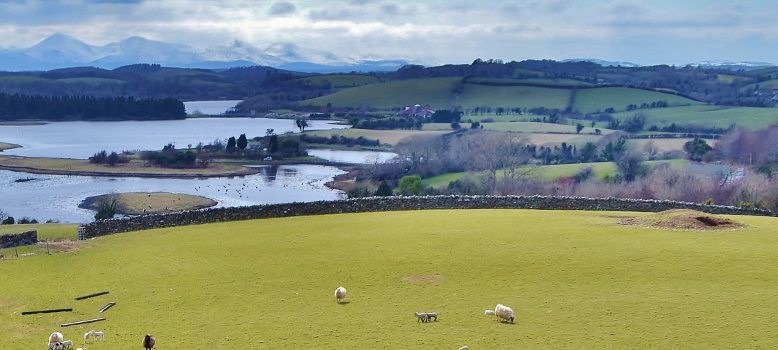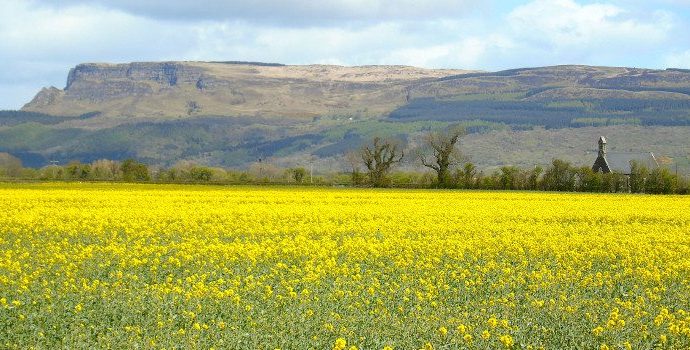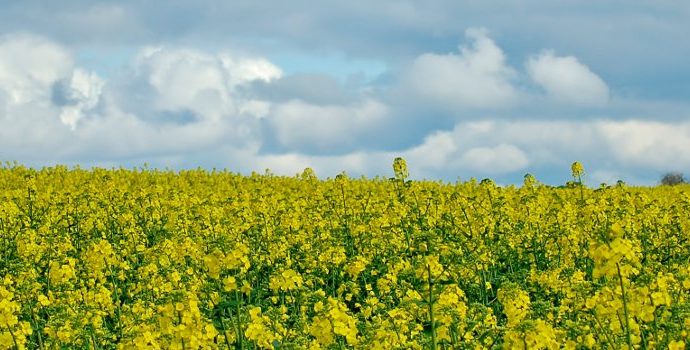Environment & Rural Affairs Council Report November 2021

Activity since last National Council
- IFA made a submission to the public consultation on the Fourth Review of Ireland’s Nitrates Action Plan Stage 2 Public Consultation Paper. A copy of the submission is enclosed or is available online here. As part of the IFA campaign on the Nitrates Review, the following activities have taken place:
- IFA made a presentation to the Joint Oireachtas Committee on Agriculture on the 14th September ahead of the submission and discussed the review of the Nitrates Action Programme. A copy of the presentation is enclosed.
- IFA developed a briefing note on the Nitrates Review. A copy of the briefing note is enclosed.
- IFA met with representatives from Teagasc in preparing the IFA submission to the review.
- IFA met with representatives from the Department of Agriculture, Food and the Marine to discuss the Nitrates plan and the implications of the proposals on the 20th September (online) and 1st November (in person).
- IFA issues press release stating that (i) Government cannot use the Nitrates review to introduce measures deliver on climate policy objectives rather than improving water quality and (ii) real negotiations on the new Nitrates Action Programme (NAP) must begin.
- IFA held protests in Cavan, Roscommon, Portlaoise and Cork City to highlight the key challenges facing Irish Farmers including the Nitrates Action Plan and the Climate Action Plan
- The Climate Change Advisory Council presented the Carbon Budget Technical Report to the Government on 25th October.
- The carbon budget represents the total amount of emissions that may be emitted in the State during a five-year period, measured in tonnes of carbon dioxide equivalent. The budgets are as follows:
| 1st budget period | 2021-2025 | 295 Mt CO2eq | Average of – 4.8% |
| 2nd budget period | 2026-2030 | 200 Mt CO2eq | Average of – 8.3% |
| 3rd budget period (provisional) | 2031-2035 | 151 Mt CO2eq | Average of – 3.5% |
- In advance of the publication of the carbon budgets IFA worked to ensure that the net net accounting methodology used to calculate emissions for the Land Use and Land Use Change and Forestry (LULUCF) was maintained in line with current EU policy. And that LULUCF and Agriculture sectoral targets remained separate. To support this position a lobbying document was prepared, see attached.
- IFA met with IBEC to discuss the impact of proposed new carbon accounting methodology being considered by Government in the carbon budgeting process.
- The National Council were briefed on Agricultural Emissions and Climate Action Targets on 6th October.
- Dr. Frank O’Mara, Teagasc gave a briefing to National Council and the Environment Committee on the Climate Action Plan targets on the 18th October.
- IFA issued a press release highlighting the serious repercussions for farming following the Climate Change Advisory Council announcement of the carbon budget and the leaked sectoral emissions ceilings reported in the media.
- The Climate Action Plan 2021 – Securing our Future was published on the 4th November 2021 and set an emission reduction target of between 22-30% for the sector, to reach 16-18 MtCO2 by 2030.
- IFA issued a press release in response to the publication of the Climate Action Plan which stated that the emissions ceiling for agriculture will be extremely challenging and could have a profound impact on the rural economy.
- A briefing note on the Agricultural emission reduction targets in the Climate Action Plan 2021. A copy of the briefing note is enclosed.
- IFA attended the Conference of Parties (COP) 26 in Glasgow. At the event the Koronivia Joint Work on Agriculture (KJWA) met and the following are a summary of the draft conclusions proposed by the Chairs:
- Sustainably managed livestock systems have high adaptive capacity and resilience to climate change while playing broad roles in safeguarding food and nutrition security, livelihoods, sustainability, nutrient cycling and carbon management. It was noted that improving sustainable production and animal health, aiming to reduce greenhouse gas emissions in the livestock sector while enhancing sinks on pasture and grazing lands, can contribute to achieving long-term climate objectives, taking into account different systems and national circumstances.
- It recognised the fundamental priority of safeguarding food security and ending hunger by designing sustainable and climate-resilient agricultural systems.
- There is a need to improve the enabling environment for mobilising resources to implement action at the local, national and international level. which recognises the unique potential of agriculture in tackling climate change.
The KJWA is a landmark decision recognising the unique potential of agriculture in tackling climate change. The KJWA was established at COP 23 in 2017 as a new process to advance discussions on agriculture in the United Nations Framework Convention on Climate Change (UNFCCC). The Koronivia decision addresses six interrelated topics on soils, nutrient use, water, livestock, methods for assessing adaptation, and the socio-economic and food security dimensions of climate change across the agricultural sectors.
- The EPA published provisional Ireland’s National Inventory Report 2021 on Greenhouse Gas (GHG) emissions on 24th October. It showed that overall national emissions had decreased by 3.6%, however agriculture emissions have increased by 1.4% and now account for 37.1% of national emissions.
In response IFA issued a press release which stated said that mitigation measures which are underway on farms to reduce emissions must be captured in the EPA data over time and will deliver results for the environment.
- The Agricultural Sustainability Support and Advisory Programme (ASSAP) second interim report was published on the 4thOctober. The report focusses on ASSAP advisory service and interaction with farmers up until the 31st December 2020.
- Diffuse losses of phosphorus (P), sediment and nitrogen (N) to waters continue to dominate as water quality pressures.
- The loss of P through overland flow, nutrient management, buffers and livestock access to watercourses were identified as key issues contributing to the pressures on waters.

- IFA made a submission to the EPA Draft National Hazardous Waste Management Plan 2021-2027. A copy of the submission is enclosed.
- IFA finalised a Memorandum of Understanding (MoU) agreement with the ESB and Eirgrid. The aim of the MoU is to formalise the working relationship between IFA, ESB and Eirgrid.
- Negotiations with Transport Industry Ireland (TII) on the draft Code of Best Practice and Guide for National Greenway Projects are ongoing with several meetings have taken place.
- Negotiations with Transport Industry Ireland (TII) on the updated Roads Agreement are ongoing with an updated agreement expected by the end of the year.
- IFA was a panellist at the Peatland Gathering on the 9th October to discuss ‘Peatlands in Ireland: challenges and solutions to support climate action and people’.
- IFA was a panellist at the British Irish Chamber of Commerce event ‘The Road to COP26: The Role of the Agri-Food Sector’ on the 15th October 2021.
- IFA attended the third meeting of the IFA Bord na Mona Working Group on the Peatlands Climate Action Scheme to discuss the development of a clear guidance on engagement with farmers.
- IFA attended a meeting with regards organising an Energy in Agriculture event for 2022 with Teagasc, Tipperary Energy and Tipperary County Council.
- IFA met with Repak ELT to discuss the issue of historic waste tyres on farms and the need for another subsidised collection service to clear the stockpiles of waste tyres on farms. The Environment Committee are in the process of conducting a survey at county executive level to gather data on the quantity of tyres which require recycling currently.
- IFA attended a number of meetings including; Irish Fertiliser Association, the Water Catchment Forum, Launch of the River Basin Management Plan, The National Pesticide Drinking Water Action Group, ASSAP Farmer Consultation Group, the Greenway Stakeholders Group, IFFPG as well as the first meeting of the Signpost Communications Working Group.
- IFA presented on Environment topics at county executive meetings including: Carlow, Kerry, Sligo, Westmeath and Donegal.
- The National Environment and Rural Affairs committee met on 13th October.
- The Smart Farming programme has:
- Held a Smart Farming Seminar online on the 20th October. The theme for the event was “Sources and Solutions: The link between our soils and water quality”. During the seminar, a series of short information videos were launched on how farmers can improve soil fertility, maximise soil carbon sequestration and improve water quality on their farms. The videos can be watched by clicking here.
- 40 Resource Efficiency assessments on farms were completed in 2021 with the following results:
- 2021 Smart Farming participants identified average savings of €5,400 on their farms by improving their resource efficiency. The highest potential cost savings were identified through grassland management, time management and improving soil fertility
- Participants identified an average potential reduction of farm emissions of 6.5% by making changes to their farming practise including extending the grazing period, using low emission slurry spreading and switching to protected urea
- Work ongoing to develop a three-year vision plan for the programme with stakeholder consultations and the Smart Farming Steering Committee who has met twice to support the development of the three-year plan.
- Working is ongoing to develop a video to showcase the benefits of Smart Farming and the costs savings and emission reductions achieved by the programme.
- Work is ongoing in developing Feed, Inputs and Waste guidance notes.
- Smart Farming issued press release on World Habitat Day with advice on managing hedgerows to protect habitat and Rural Water week to highlight one of the key actions for farmers to protect water quality ensuring that the right fertiliser is applied at right time, at the right rate, in the right place on the farm.
Any EU/COPA developments
- The next meeting of the Working Party on Environment will be held on 30th November.
- The next meeting of the Carbon Border Adjustment Mechanism (CBAM) Task Force will take place on the 23rd November.
Upcoming issues
- IFA to finalise 3-year plan for the Smart Farming programme with the EPA.
- IFA to prepare submission for the Public Consultation on the draft River Basin Management Plan for Ireland 2022-2027.
- IFA to organise a series of events on agricultural emissions with a focus on carbon.
- IFA to finalise the IFA roadway agreement with TII by the end of 2021.





